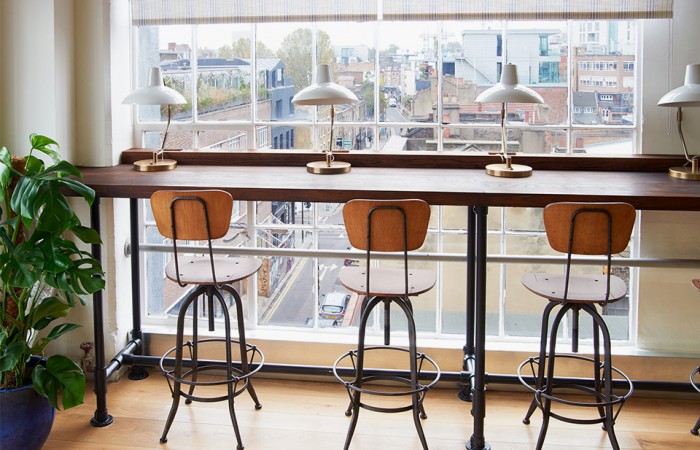In January 2015, I walked out the door of the global “integrated communications and marketing” agency where I’d held a well paid senior position and into the unknown.
I’d long wanted to establish my own collective – a loosely knit collaborative network of experienced professionals from all walks of life – as a sort of antidote to the mediocrity offered by big agencies. That, at least, was the initial plan.
In anticipation of taking over the World, or at least earning a living, I bought a domain name, secured the relevant social media handles, registered with Companies House as a Limited Company, and set up a business bank account.
Like any proper challenge in life, the past year has had its ups-and-downs. The collective never really got off the ground, but I have survived the year I’ve been an independent consultant. Here’s what I’ve learned from the experience:
1. I have worked for, and still have great relationships with, many leading global brands. I’d expected at least some of them to flock to me when I started my new venture since, afterall, if they were happy to pay my previous agencies as much as £2200 a day for my time, they’d be delighted to hire me directly for a fraction of that rate. Wrong. Big name clients work with Big global agencies for a reason – not because those agencies are better at what they do, but because selecting an agency from a list of “reputable firms” is far less risky than hiring some bloke who works from a co-working space.
2. You might think that the other freelancers and small agencies you have good relationships will bring you in on their accounts. They might if they’re stuck between a rock and a hard place, but most of the time they won’t want you in the mix because they’ve spent hard graft, and possibly cash, to secure those clients for themselves. Find your own client, mate.
3. Prospective clients will pigeon-hole you, which is fine (afterall, they want someone who can deliver a specific thing) except that, should you have a greater level of experience than is required, they’ll assume you are “over-qualified” and drop you from the shortlist.
4. The tax regime for freelancers is advantageous, but complying with the regulations isn’t something most people would want to try to do on their own. Like most employees, I’ve always been taxed at source by my employer. Everything I earned was taxable. Now I can pay myself a salary and a dividend. So what? Well, the dividend only attracts a 20% corporation tax rather than the higher rate my income might attract. Result! But get an accountant.
5. You’ll need a hobby. I’ve had weeks where I couldn’t possibly get everything I needed to get done, even if I didn’t bother to eat or sleep. I‘ve had other weeks where I’ve basically had f*ck all to do. Even inbetween those two extremes, you’ll probably find that not having to commute to an office, work specific hours, and sit through unnecessary meetings will provide you with oodles of freetime you don’t know what to do with. If you have a hobby, you can fill your down time, otherwise you’ll probably go a bit stir crazy over-analysing the work lull.
6. Getting to go to your children’s art-week / school open day / first football match is priceless. Just do it. Even if it costs you £70 in lost fees.
7. If you do start to apply for roles, don’t expect to hear back if you’ve been unsuccessful. I’ve recruited hundreds of people for roles over the years and, I’m quite proud to say, replied to each and every one of them, even if it was to explain why their application hadn’t moved forward. I thought that everyone took that approach but was wrong – most of the time, I’ve not heard a thing. It used to piss me off, but now I recognise it as normal, albeit a bit crap.
8. At some stage your significant other, parent or kid (or all of them) will accuse you of spending all your time galavanting around town, being an idealist, or becoming overly complacent with the whole not having a real job thing. When it started for me, the signs were subtle – my wife started coming home with a beer called Proper Job, which she would open and offer me, label facing towards me, with an irksome smile on her face. All these people are probably right, of course – when you work for yourself you do get to faff about quite a bit. Regardless, I’ve found nerf guns to be quite useful in dealing with the naysayers effectively.
9. Sometimes, opportunities will come your way that you just aren’t suited for. Rather than embracing the cash, try to find someone in your own network that you can pawn the project off on. Save yourselve the pain and your reputation the damage – and get paid for sending an email or two – great.
10. Remain positive. Rejection, uncertainty and economic realities can all take a toll on your self confidence. Thing is, the totality of who you are isn’t just the work you do. Indeed, over the last year, I’ve finally realised that what I do for a living is not the entirety of my identity and, indeed, is far less important to myself and others than I’d once thought.
Walking away from the certainty of a monthly pay check is hard. Initially, the results of doing so can be disappointing. That said, if you are brave, and have the economic breathing space to focus on doing what you love rather than what you’ve come to be recognised as capable of, it can be rewarding. Oh, and if you’d like to hire me…
